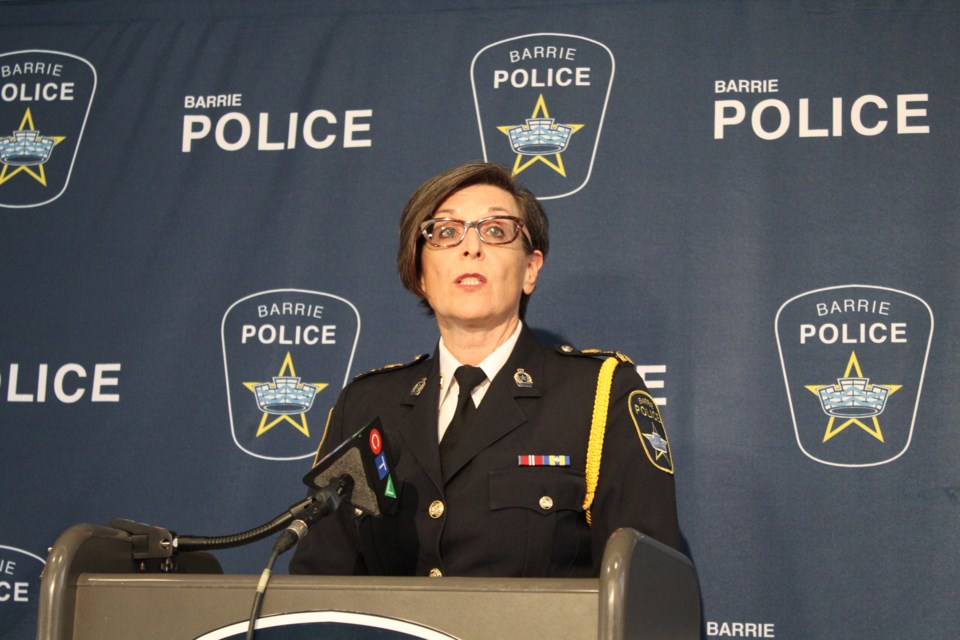The provincial government will introduce new legislation today that Progressive Conservatives say will eliminate police officers being treated with suspicion by "streamlining" the Special Investigations Unit (SIU) process.
The government says police officers and their families "will finally be able to count on a fair and transparent police oversight process" under the new Comprehensive Ontario Police Services Act, 2019.
The PCs say the changes would create better police oversight in Ontario by creating one window for public complaints, reducing delays in the investigation process and ensuring more accountability.
The new Act would create the Community Safety and Policing Act, 2019 and the Special Investigations Unit Act, 2019 to repeal and replace the Police Services Act, 2018, and the Ontario Special Investigations Unit Act, 2018. The bill would also repeal the Policing Oversight Act, 2018, and the Ontario Policing Discipline Tribunal Act, 2018.
In Barrie last week, and after months no new information, the SIU announced its findings after an eight-month investigation into a high-profile case regarding the custody death of Olando Brown.
The police officers who were involved in the 32-year-old Barrie man's arrest on June 22, 2018 were cleared of any wrongdoing by the SIU, which is an arm's-length agency that investigates serious injury or death involving police.
The case made headlines when video surfaced of Brown's arrest in downtown Barrie, which showed him being tasered by officers at the Five Points.
When it was announced he had died in custody, the news led to protests and rallies in the city including the Black Lives Matter group as well as slogans such as 'end police brutality'.
However, the SIU determined Brown choked on two drug-filled baggies at the police station that he had removed from his rectal area in a room at police headquarters on Sperling Drive.
Although police almost invariably will not take questions regarding a case under investigation by the SIU, Barrie Police Association president Tom Sinclair released a statement after the SIU's findings, noting that the public was quick to rush to judgment on the Brown case. He said the "rashly shared" video, with its "baseless narrative," led to officers and their families being threatened.
Police Chief Kimberley Greenwood said she would welcome the legislative changes.
"The Ontario Association of Chiefs of Police has long advocated for significant changes to the Police Services Act in order to assist us in the efficient and effective management of police services that enhance public and officer safety," Greenwood, who's also the president of the Ontario Association of Chiefs of Police, said in the province's release.
"We believe there are items in this new legislation that are welcome and look forward to continuing to work with the government and stakeholders, knowing that community safety is our absolute priority," Greenwood added.
If the new legislation is passed, the PCs say it will "fix" the previous government's Bill 175, also known as the Safer Ontario Act and which includes several provisions relating to the SIU and how it operates.
Minister of Community Safety and Correctional Services Sylvia Jones referred to Bill 175 as "the most anti-police piece of legislation in Canadian history. It was a disaster. It actively undermined policing efforts. And it undermined public confidence and trust in the work police do."
Attorney General Caroline Mulroney, who's also the MPP for York-Simcoe, said she foresees a new Act that ensures oversight in a way "that is balanced, respectful and fair."
It would focus investigative resources where they are needed, on criminal activity, she said, within a police oversight system "that will ultimately help build safer communities on a shared foundation of restored trust and accountability."



